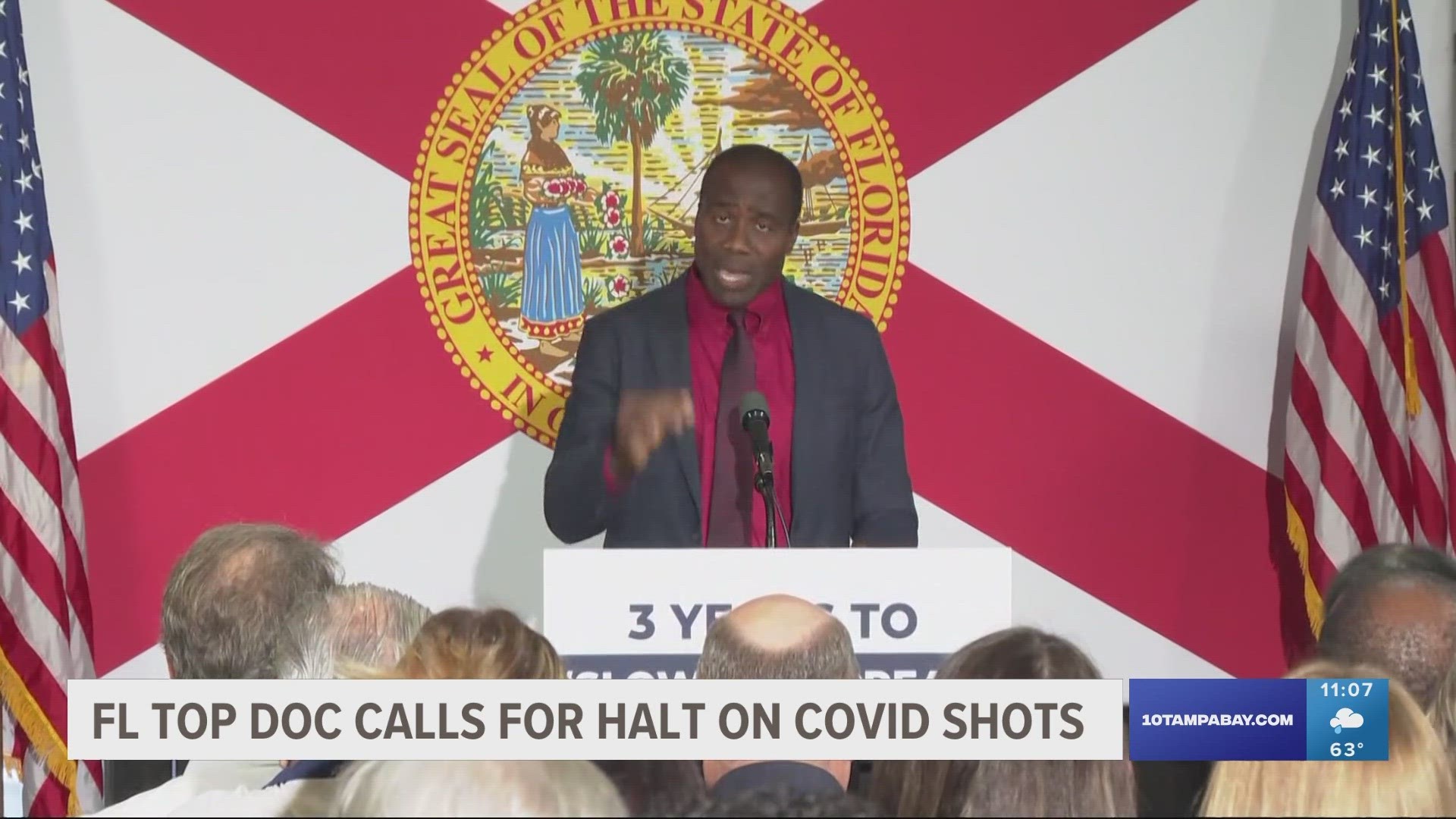ST. PETERSBURG, Fla. — Online video conferencing is the new way to spend time with friends, check in on loved ones, throw birthday parties and teach students; but according to the FBI, it’s also where hackers are waiting to strike.
The FBI is seeing instances of “Zoom-bombing” or people hijacking video conferencing nationwide. It has received several reports of conferences being disrupted with pornographic or hateful images and threatening language.
Last month, a Massachusetts high school reported a hijacking where an unidentified person dialed into their Zoom class and began yelling profanity and the teacher's home address.
In another case, a second school in Massachusetts reported to the FBI that a person disrupted their Zoom meeting and showed swastika tattoos via video.
Speaking to CBS News, a woman who asked to be identified as Michelle out of fear of more online attacks, said her daughter’s online class was “Zoom-bombed” by a group of boys who used slurs before one exposed himself.
"First, the screens were completely black and they were saying all these anti-Semitic things, cursing them out, saying you f***ing Jews, et cetera," Michelle told CBS News. "And then one boy suddenly stripped and was naked."
And they’re not the only ones.
The issue is not lost on Zoom Founder and CEO Eric Yuan who wrote a blog post addressing “Zoom-bombing” happening in video chats launched through their service.
Yuan addresses that Zoom usage “ballooned overnight” saying that the site went from 10 million daily meetings in December 2019 to 200 million daily meetings in March. But, Yuan says that this does not excuse responsibility and changes will be made.
“However, we recognize that we have fallen short of the community’s – and our own – privacy and security expectations. For that, I am deeply sorry, and I want to share what we are doing about it,” Yuan wrote.
Since becoming aware of security issues, the company has implemented training and tutorial webinars, live daily demos and are working to minimize customer support wait times.
But, there are more enhancements and changes to come in the near future, according to Yuan.
Over the next 90 days Zoom plans to:
- Add freeze features
- Enhance security
- Run testing
- Host a weekly webinar about privacy and security updates
As for your questions and concerns? Zoom says that they are taking them seriously.
“We take them extremely seriously. We are looking into each and every one of them and addressing them as expeditiously as we can. We are committed to learning from them and doing better in the future,” Yuan wrote.
There are actions that you can take on your own to protect both yourself and those you are meeting with daily, according to the FBI
The FBI suggests:
- Do not make meetings or classes public.
- Require a meeting password or use the waiting room feature to control who is admitted
- Do not share a link to your meeting or class in a public space or social media post. Only share directly with those invited.
- Set screen sharing to host only
- Make sure users are using the most updated version of remote access/meeting applications
If you experience video conferencing hijacking or any cyber-crime, the FBI asks you report it to its Internet Crime Complaint Center or tip center.
- Florida Gov. Ron DeSantis issues statewide stay-at-home order. What does it mean?
- Model: Florida's coronavirus peak could come in early May, with hundreds of deaths daily
- Floridians onboard coronavirus-stricken cruise ship will be accepted in the state: governor
- Stimulus check calculator: See how much you'll likely be getting
- Hotlines, websites offer the latest on COVID-19
- Stay-at-home vs. shelter-in-place: Here's what they mean
- Texas family dances COVID-19 troubles away in viral 'quarantine challenge' video
FREE 10NEWS APP:
►Stay In the Know! Sign up now for the Brightside Blend Newsletter





